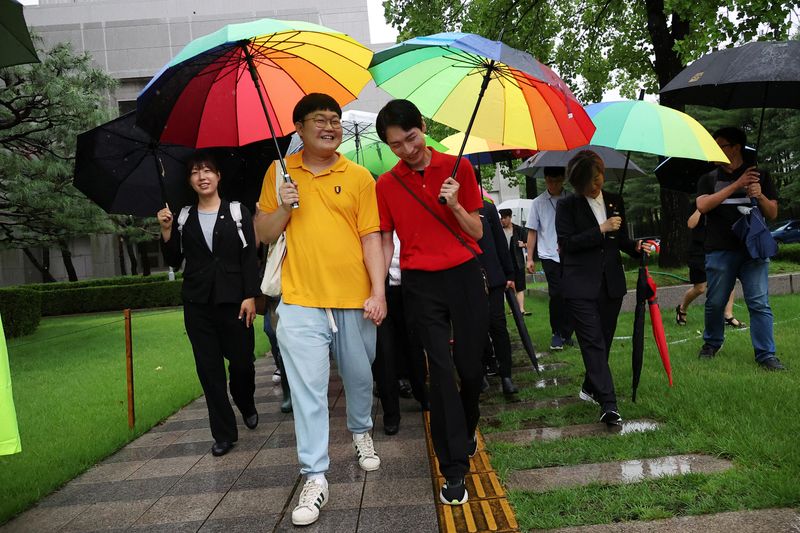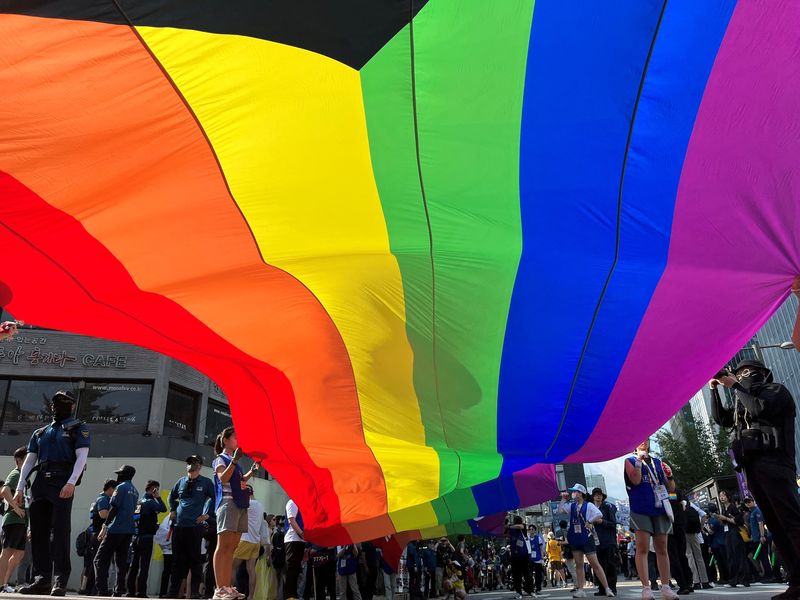By Hyunsu Yim
SEOUL (Reuters) - South Korea's supreme court on Thursday upheld a ruling that a same-sex partner was eligible for spousal benefits from state health insurance, a move hailed as a win for LGBTQ rights in a country that has lagged others in the region.
The court confirmed a landmark decision by the Seoul High Court early last year that the National Health Insurance Service should provide equal spousal coverage to So Sung-wook and Kim Yong-min - a gay couple who filed a suit in 2021 against the agency after it cancelled their spousal benefits.
"I couldn't believe when I heard the ruling. I was extremely happy and I started crying," Kim told Reuters outside the court.
"It took four years to earn this dependent status," he said. "We need to fight harder to legalize same sex marriage going forward."
Chief Justice Jo Hee-de said that denying the couple benefits, even though there are no clauses in the national health insurance act that specifically refer to same-sex unions, constituted discrimination based on sexual orientation.
"It is an act of discrimination that violates human dignity and value, the right to pursue happiness, freedom of privacy and the right to equality before the law, and the degree of violation is serious," judge Jo told a televised trial.
So and Kim refer to themselves as a married couple, but their marriage is not legally recognised in South Korea.
Lawyers and advocates said the ruling marks the first legal recognition of a same-sex unions.
"With this ruling today, the legal status of same-sex couples will be recognised in the public system, so I think the existence of same-sex couples will become more visible," Chang Suh-yeon, one of the lawyers who represented the couple, told reporters.
While campaigns to legalize same-sex marriage have succeeded in Taiwan and Thailand, there is no legal acknowledgment of LGBTQ partnerships in South Korea, forcing couples to move abroad if they want to get married legally.
The Supreme Court's ruling is a "stepping stone for progress" towards marriage equality, said Horim Yi, an activist at LGBTQ campaign group Marriage For All.
"It's going to be a very hopeful ruling for same-sex couples living in South Korea," Yi said.
Last year, the couple told Reuters they were being open about their story to help "change people's opinions and help other LGBTQ people like us gather up courage".

Conservative religious groups in South Korea have mounted fierce resistance to efforts to pass laws promoting LGBTQ rights, prompting many people to hide their identity in the workplace as they struggle for equal recognition and acceptance.
Ahead of the ruling, members of conservative Christian groups held a rally outside the court, waving a banner reading "Same sex families are nonsense. Supreme Court, overturn the Seoul High Court's ruling!"
